Toronto Wolfpack VP Of Commercial Jon Pallett On Being First Transatlantic Pro Sports Team
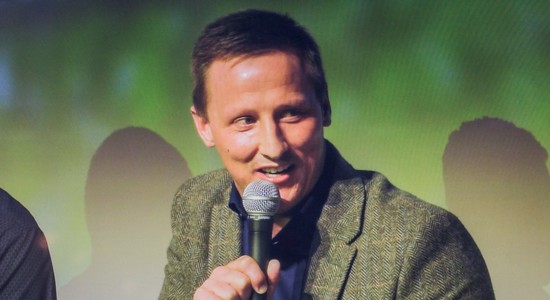
Toronto Wolfpack VP Of Commercial Jon Pallett On Being First Transatlantic Pro Sports Team
Jon Pallett is the Vice President of Commercial for Toronto’s professional rugby team the Toronto Wolfpack. Operating out of the Lamport Stadium, the Wolfpack initially started in 2017, becoming the world’s first transatlantic professional sports team participating in both the Super League and the Super League. Recently, I chatted with Jon Pallett and he provided me with a closer look at what it’s like to work in professional sport in this unique environment. One of my favourite parts was exploring the exciting world of rugby, one of Canada’s fastest-growing sports. A title such as Vice President of Commercial comes with a lot of responsibilities! Building partnerships, overseeing commercial activity, monitoring social media, marketing and game day activity are just some of the many responsibilities Jon Pallett has. It was an absolute pleasure to chat with Jon and it’s even more exciting that I am able to share that conversation with you below. Enjoy!
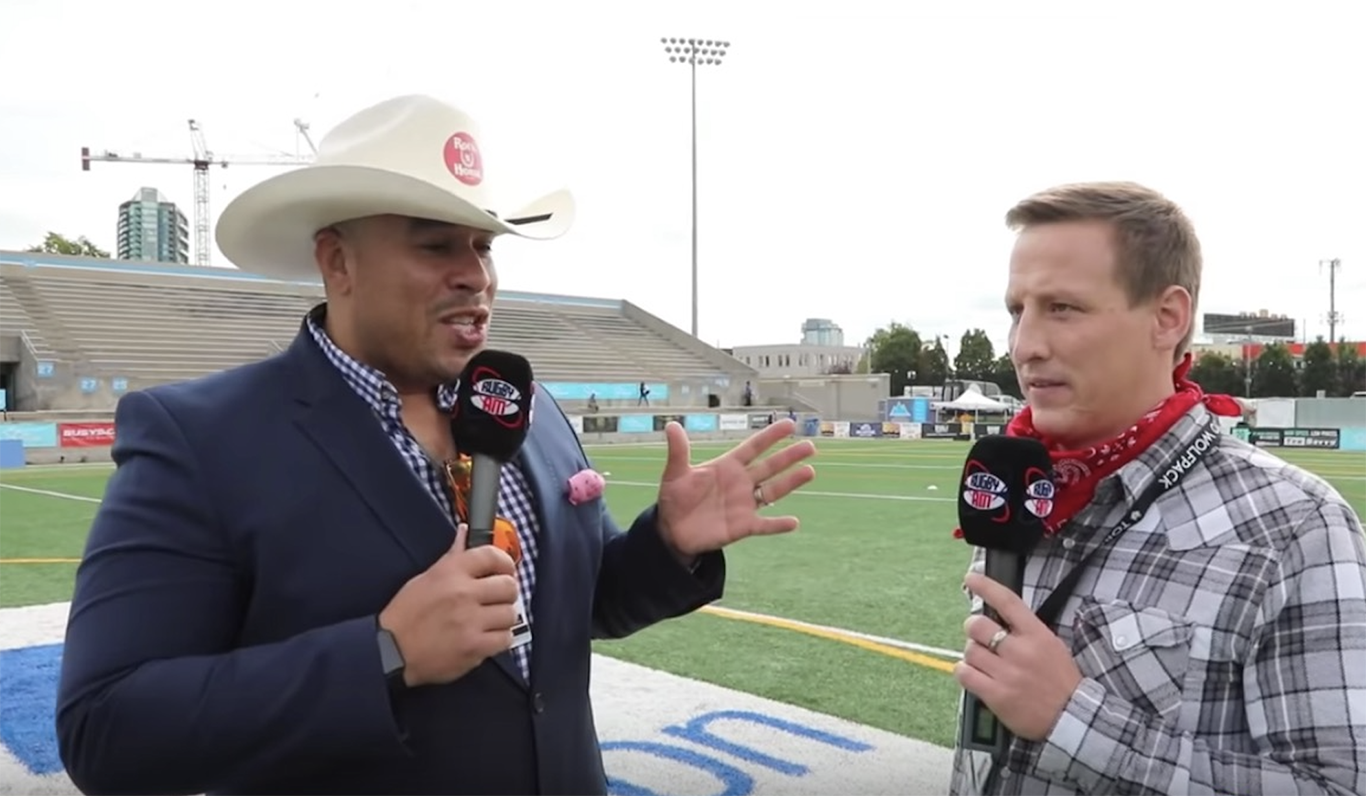
Please note: The interview with Jon Pallett was conducted via a typed conversation. Editing changes were made to make it easier to read while maintaining the voice of the interview.
Tell us about your role as the Vice President of Commercial of the Toronto Wolfpack.
I oversee all the Commercial activities for the team in North America. This includes building partnerships with new and existing sponsors, managing ticket sales and overseeing our retail operation. During the season I am also involved heavily in-game day delivery and ensuring our fans have the best possible experience at our Lamport Stadium home. I manage staff in marketing, social, design, partnerships, retail, community and customer service. As the world’s first transatlantic professional sports team we also have a significant commercial presence in the UK, where 10 of the 11 Super League teams we compete against are based and consequently where we spend half our season.
The UK side of the business is headed up by our UK General Manager, who co-owns our portfolio of partners who are active in both the UK and Canadian markets. I form a link between the UK General Manager and the team here in Toronto. Since founding the team in 2017 the Wolfpack has always prided ourselves on being forward-thinking and in 2019 we became the first professional sports team to enter the CBD space. I am also involved in the promotion and marketing of our topical CBD cream ‘Rugby Strength’, as well as supporting the launch of a growing portfolio of health and wellness products we are introducing through 2020.
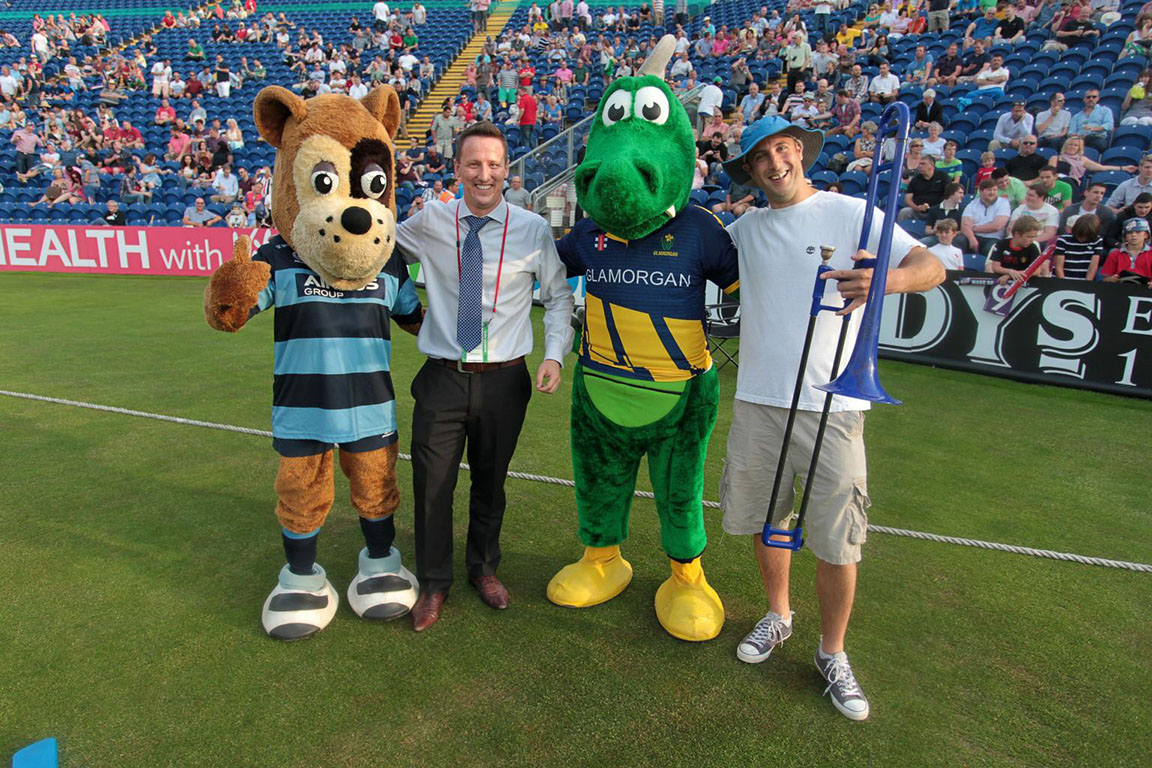
What does a typical day look like for you?
As we straddle two time zones 5 hours apart I generally start my day in Toronto from home ensuring my UK colleagues, who are at that time halfway through their working day, have everything they need from the Canadian side of the business (where our marketing, social, digital and design teams are based). We work from an office space next to our stadium, with a retail store on the same block, so by mid-morning, our staff will group in that area. We have a small team of 12 full-time staff in Toronto so it is not unusual for half the team to jump in and support a media appearance, community event or get involved in the operational setup of the stadium alongside their normal roles.
When was the point you realized that you were meant to do this career? Take us through that realization.
I played a wide range of sports from a very young age. I always wanted to work in the industry and studied a degree in Sports Science at 18 years of age. After a few years in sports coaching and development, I decided it was the commercial side of professional sport that appealed more to me. I was fortunate in that London hosted the Olympics in 2012 meaning thousands of jobs were created in the year leading up to the Games. I chose to do a one-year Masters in Business Administration in 2010 which allowed me to then move into a role in Marketing in London. From there I went to live in Australia and work for a T20 cricket franchise, before returning to the UK for a 4-year period with professional cricket and rugby union teams. In 2017 I moved to Toronto on a residency visa and on arrival I was introduced to the Toronto Wolfpack ownership, which led to the current role. Growing up I always followed football/soccer and that is still my choice of sport to play and watch. I am sure at some point I will find my way to a professional football/soccer team in the future, but for now, I am enjoying the variety of different sports I have been lucky enough to work in and learn from.
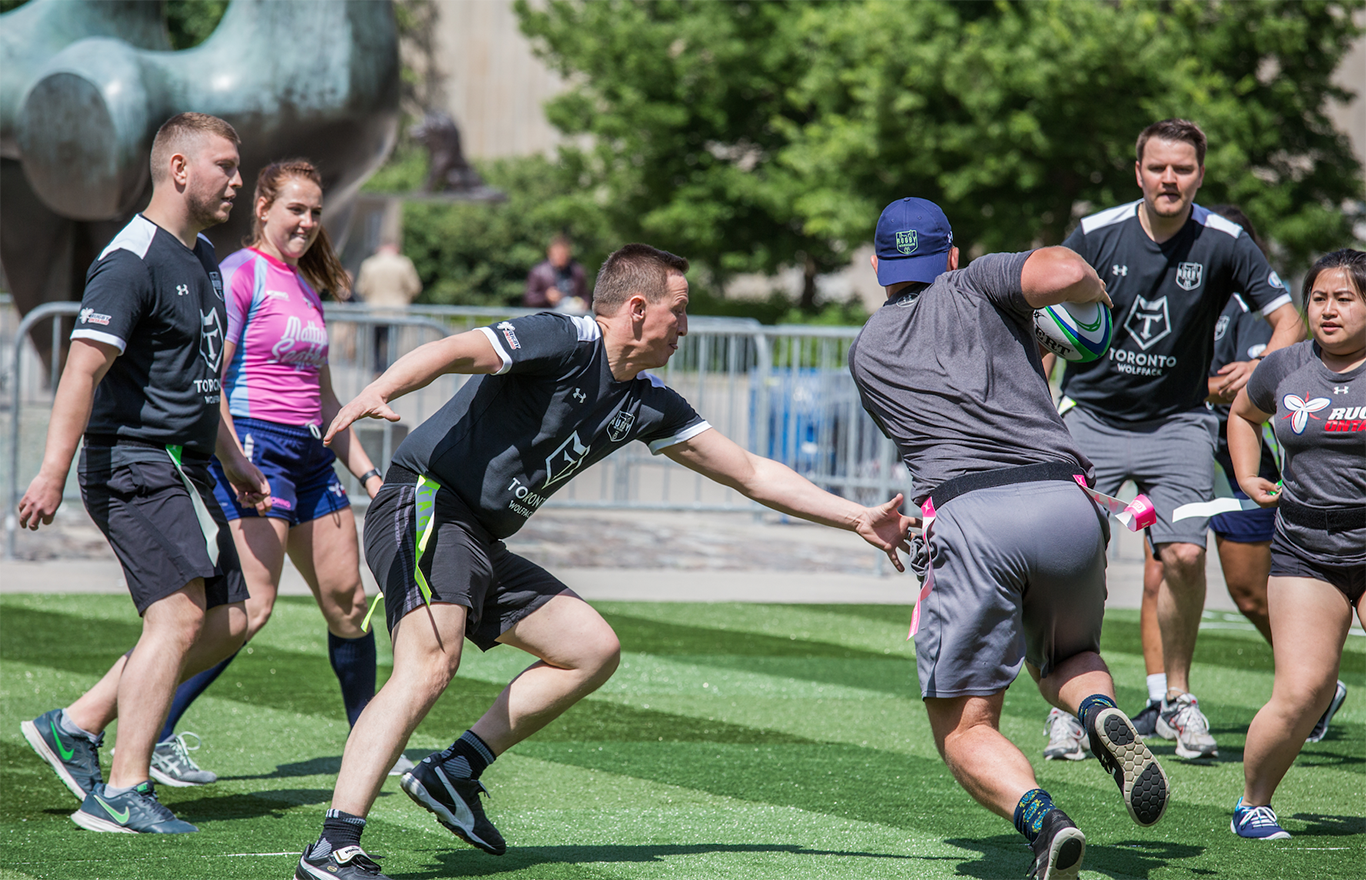
What are the most rewarding and the most challenging aspects of your role?
The most rewarding aspects are around the uniqueness of the project. While a few big American leagues have played games in Europe no one has ever based an individual team across the Atlantic. This, coupled with our on-field rise from the bottom tier to the Super League, means we get regular coverage from major media outlets around the globe. To see us grow from a start-up to a global brand in a short space has been an incredible experience for everyone involved whether it be players, coaches or the staff in the office. The fanbase we have built, and the appreciation they have for the team and the game days we put on, has also been really special. The most challenging aspect of the role would be around the fact we are still a very small team compared to other teams either in the Super League or in our home city of Toronto. This means all the staff wears many hats and there are always more people could do in their areas, or more they could do to assist a colleague in theirs.
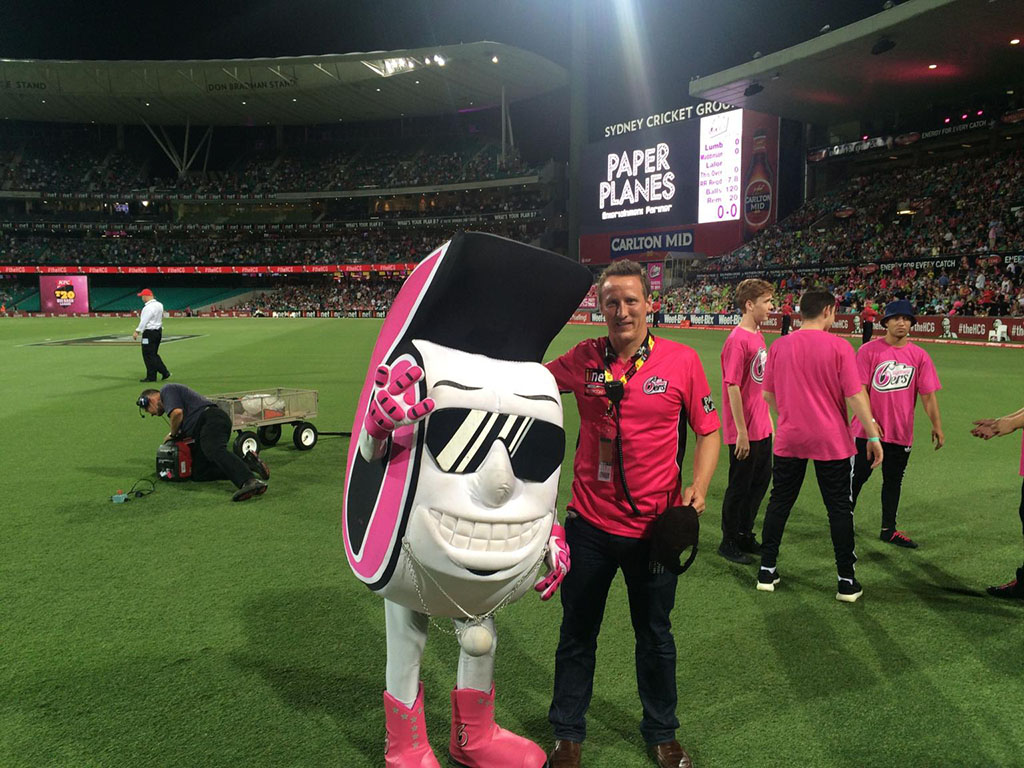
Would you say your path to your current position was quite easy or rather challenging, and can you discuss why?
The path really began with my first two roles in professional sport, at London 2012 and Sydney Sixers. I landed each role by simply sending messages in LinkedIn to individuals I wanted to work for, who went on to become fantastic bosses. I was making those approaches with a polite request for work, among many approaches that didn’t come off, but of course, those messages could easily have been missed or ignored so that really made things easier than relying purely on job applications. I moved to both Australia and Canada without work so I guess the challenge there was in putting in the time in the UK to work and build up funds, and having the confidence to book the one-way plane ticket.
What would you say are the top 5 biggest moments or accomplishments in your sport management career? Please explain each choice.
1 Selling out Lamport Stadium (10,000 capacity) for Toronto Wolfpack’s Rugby League Championship Grand Final in 2019 – This was the culmination of a season of work in building our game day experience, fanbase, and media profile in Toronto. People knew this was a big game and wanted to come out and support.
2 Toronto Wolfpack Mascot comeback at 2019 Home Opener – Our mascot Jefferson Wolf was stolen from our stadium in 2018-19 offseason. We put out a public appeal and took the opportunity to pretend to have a new and far cheaper mascot “Gordo”. A host of major media outlets from Toronto and beyond picked up the backlash from fans who were outraged we would not replace Jefferson. We played along securing some incredible exposure in the lead up to the Home Opener before releasing a new Jefferson as part of the half time show.
3 Dragons Rugby Rebrand – I spent two years with the Welsh rugby union region in Gwent, formerly known as Newport Gwent Dragons. The team was taken over by the governing body in the offseason and we quickly turned around a re-brand to Dragons Rugby. The aspiration was to create a simpler brand look and feel, which helped unify the region’s fanbase.
4 Delivery of the 2015 Ashes in Cardiff – “The Ashes” are world cricket’s biggest test match, played every two years between England and Australia. Cardiff will only be asked to host every 12 years so this was a special event. I was involved in a whole host of community projects which we tied in to maximize the opportunity we had to grow the game of cricket in Wales.
5 London 2012 – Torch Relay. One of the key challenges in London 2012 was to ensure people around the UK, and not just London was celebrating the games in their communities. I was involved in an initiative to gather plans people had to recognize the Olympic Torch relay passing their communities and build local and national press coverage for their efforts. We had some great success in Cornwall where the relay started, and this had a knock-on effect across the UK as an incredible number of people came out to “line the streets” when the torch passed through.
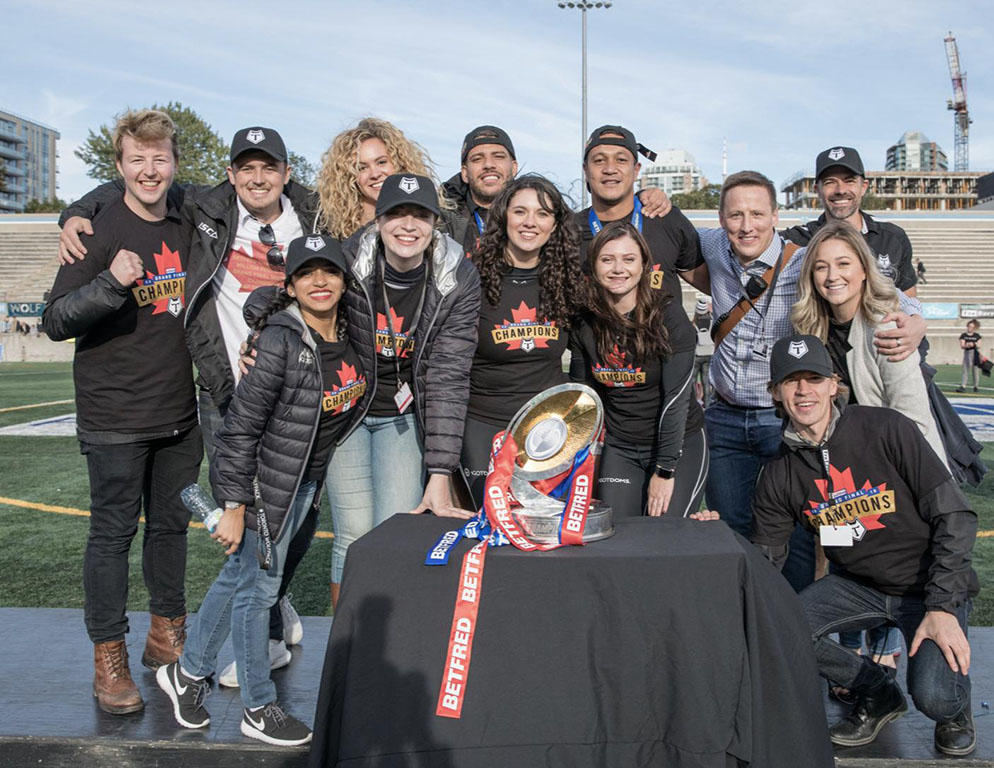
What advice would you give to prospective sport management professionals looking to work in sport at a similar level to yourself but just starting off in their career?
I recommend to anyone to try and build experience to stand out whether that be by volunteering, doing internships or seeking roles at events where there is a sudden need for temporary staff. These could be major tournaments like World Cups or Olympics or things like golf or tennis tournaments that come to a city once a year or even some student sport events.
If people volunteer or work casually and return to the same role, they can quickly become senior and open doors to full-time employment. The networking opportunities are also very good at events as you meet a lot of people with the same aspirations.
I often refer to my resume as a portfolio resume and sport really does give you the opportunity to move between roles to seek different experiences. As an example, when I started at the Wolfpack no one queried my experience or knowledge of rugby league, they would have just seen transferable skills from other sports. I certainly recommend moving around, whether that be working overseas or just moving between sports, and not immediately heading to the sport you necessarily like the most.
There is also a benefit to working for less popular teams or in less popular sports to be part of a smaller team and gain a broader experience doing more things, rather than having a role with a narrow focus working for a bigger team.
What are 5 words you’d use to describe your career in sport? Please explain your choices.
1 Rewarding – Sport has the power to inspire people. When you deliver events and games for professional teams you contribute to that and see the impact it can have on people first hand. This could be a child finding the perfect role model, or someone less privileged having the chance to feel part of something by attending a game thanks to a community ticketing program.
2 Exciting – Regardless of their roles all staff feel very much a part of the organization and ride the rollercoaster of results with the team (these results also affect everyone in their day to day jobs). There are few things more exciting for me than seeing a capacity crowd rise to their feet at the end of an important win for the team.
3 Intense – When the season opens up, or you go on a playoff run, work can definitely take over your life. Ahead of a Home Opener, you are concerned about 100% of the things that need to happen, later in the season, you are only focused on the 20% of things you want to introduce or improve.
4 Varied – The entire workforce can be pulled on any given day into contributing on a critical one-off project. Examples include media storms, sponsor launches, community activations, fan events and of course playoff games!
5 Crazy – Sports teams and events operate under a lot of media and fan scrutiny. Things can go wrong, sometimes these get out to the public and sometimes they can be kept under wraps. Either scenario can make for a crazy and unpredictable working life!
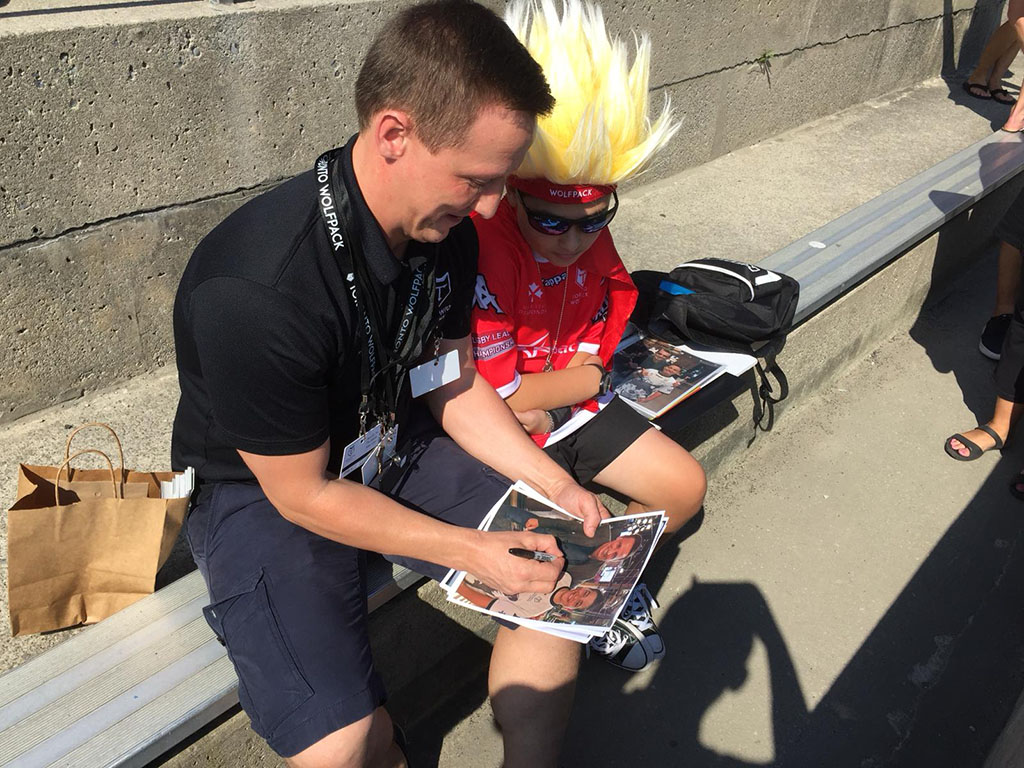
1 Any Given Sunday
The half time speech by Al Pacino is incredible no matter how many times I watch it.
2 Cool Runnings
I just love the underdog story, and how the Olympics and Winter Olympics still gives athletes from around the world the opportunity to compete at the very top level.
3 Jerry Macquire
The life of a sports agent is always a little mysterious and under-reported, this movie has a really good attempt at explaining it.
Marilyn's Final Thoughts
Interview by Marilyn Napoli


